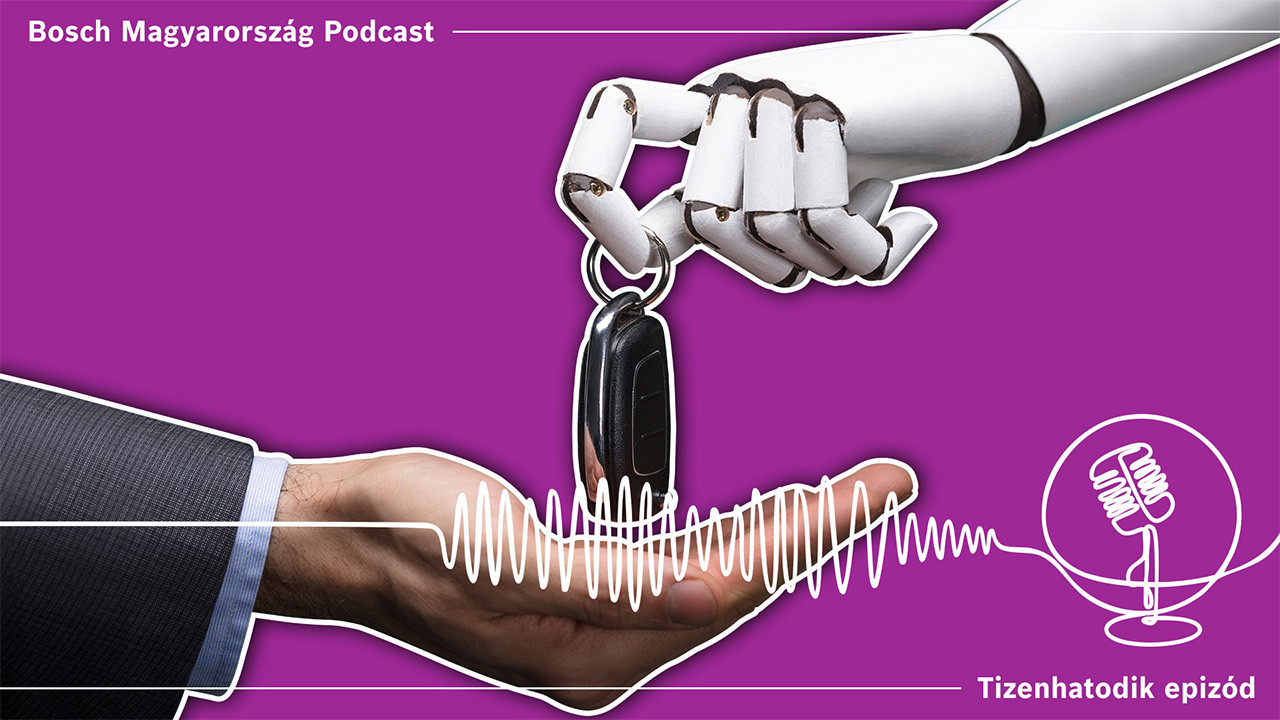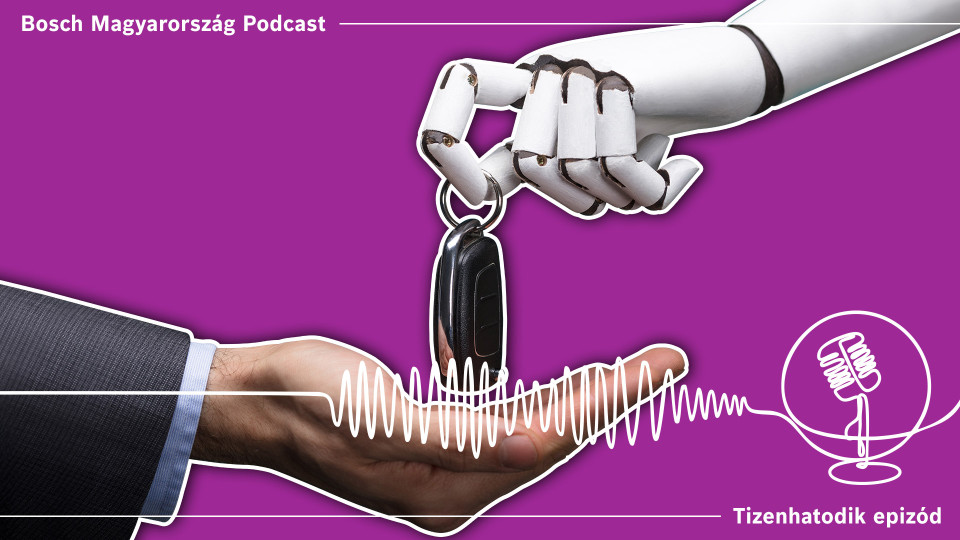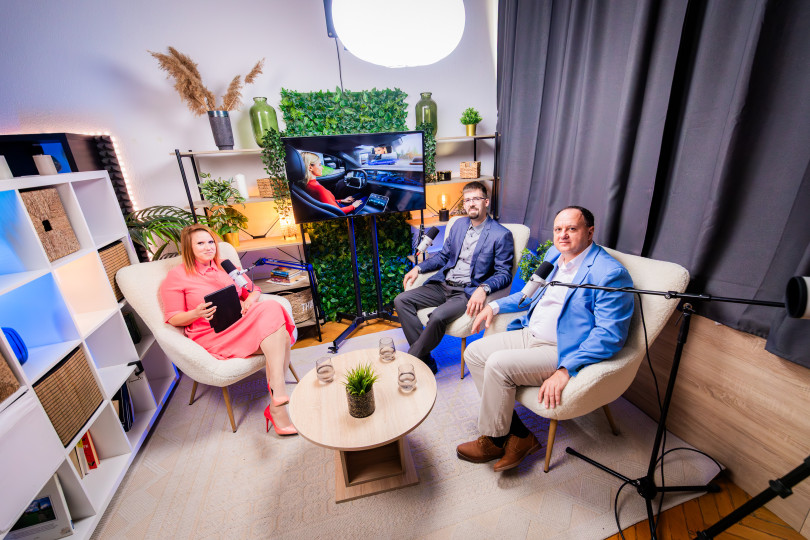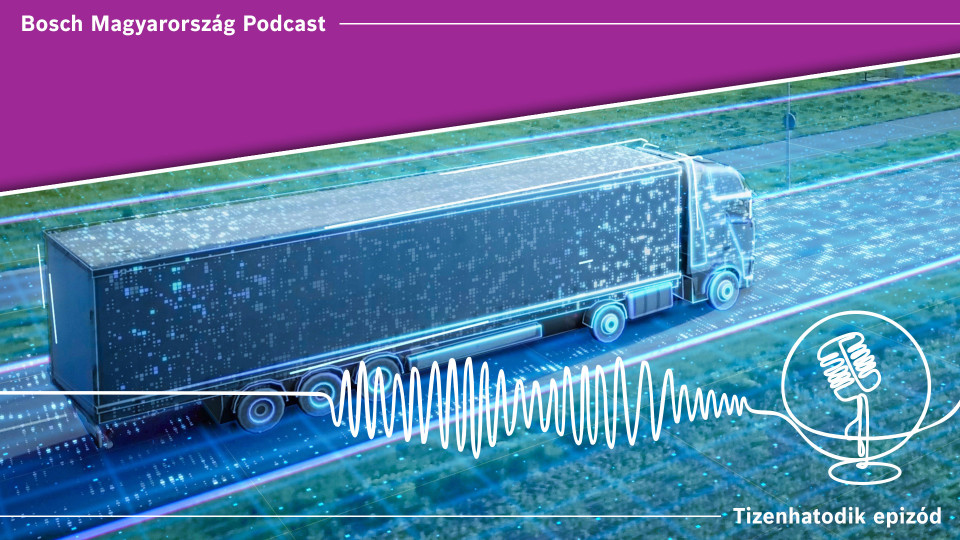If an automated car causes an accident, who is responsible: the passenger, the manufacturer, or the algorithm itself? What level of automation do current road vehicles possess, and how does this affect traffic safety? Issues surrounding automated vehicles continue to divide public opinion, despite the fact that the combined use of lidar, radar, and cameras promises accident-free transportation in the future. Dr. Csongor Herke and Kornél István Kis, experts on the subject, examined the legal and technological challenges of automated vehicles.
Although more and more automated vehicles are on the roads every year, the legal definition and regulation of this technology is still challenging and struggling to keep pace with developments. In addition, widespread social acceptance is hampered by many negative examples, even though the positive effects are already evident. Professor Dr. Csongor Herke, head of the Department of Criminal and Civil Procedure at the Faculty of Law of the University of Pécs and head of the faculty’s doctoral school, and Kornél István Kis, senior expert of Bosch Hungary’s artificial intelligence team, analyzed the complex challenges and future possibilities of automated technologies.
Automated systems could reduce the number of road accidents by up to 90 percent
Eliminating the human factor from the driving process could significantly reduce the number of road accidents. Automated systems are not only capable of accurately sensing the environment, but can also predict potential hazards, enabling the vehicle to react proactively. Kornél István Kis emphasized: “Automated vehicles can prevent up to 80-90 percent of accidents by eliminating human errors such as inattention, fatigue, or rule violations, which are the causes of most accidents.”
Dr. Csongor Herke confirmed that automated vehicles reduce mental stress, whether it be long and monotonous driving on the highway or inching through traffic jams. In addition to increasing safety, this is the biggest advantage of today’s systems. “Most people are afraid of automated cars, but I am firmly convinced that there would be far fewer accidents if only automated vehicles were on the roads. Four out of five traffic accidents are caused by factors that would never occur with automated vehicles. Most accidents are caused by speeding, illegal overtaking, improper lane changes, and drunk driving, which do not occur at all in automated vehicles,” he added.
The use of lidar-radar-camera systems could bring accident-free mobility
Modern systems are already capable of perception and prediction beyond human capabilities. Lidar technology enables accurate distance measurements, while radar can detect the environment regardless of visibility conditions. Cameras provide key assistance in processing visual information. The combination of these sensors enables vehicles to travel safely even in adverse weather conditions. As an example of environmental mapping, Kornél István Kis mentioned a case where the sensors of an automated vehicle detected pedestrians about to step out from behind of a bus that were completely obscured, thus avoiding an accident. This is almost impossible for human perception.
Automated vehicle systems in freight transport and manufacturing
Automated vehicle systems could revolutionize transportation beyond passenger cars. Experts agreed that automated technologies have potential beyond passenger cars. Kornél István Kis pointed out that the widespread use of this technology in commercial vehicles and in the field of logistics could also bring significant benefits, such as reducing driver shortages and optimizing transport processes for trucks and tractor trailers. He also noted that automated logistics solutions, such as vehicles operating in automated warehouses, are already delivering significant efficiency gains in manufacturing and could play an increasingly important role in optimizing production processes in the future.
Missing links in the regulation of automated vehicles
In addition to trust, one of the biggest obstacles to the spread of automated technologies is the lack of a legal framework, which is a problem worldwide. Regulation should not only keep pace with technological developments, which is a serious challenge for legislators in itself, but also must clarify liability issues in the event of an accident. Furthermore, it must address social and ethical issues, as automated cars collect and store huge amounts of data. Dr. Csongor Herke emphasized that creating a legal framework is essential for automated cars to operate safely, transparently, and responsibly on the roads and for society to accept this new technology with confidence.
According to the legal expert, studying international examples and adopting best practices can help legislators develop appropriate regulations. It is important that regulations do not hinder technological development but rather support it while ensuring traffic safety and user rights.
Bosch Hungary Podcast: technology in plain language
The Bosch Hungary Podcast deals with the most current issues in innovation and R&D, seeks to provide clear answers to the most pressing questions about the technology of the future with the help of expert guests. If you would like to learn more about current issues in artificial intelligence, you can listen to the answers and even watch them on Bosch Hungary’s podcast channels on YouTube, Spotify, Apple Podcasts, and Simplecast!
Zita Hella Varga
Phone: +36 70 667-6374
Bosch has been present in Hungary since 1898 with its products. After its re-establishment as a regional trading company in 1991, Bosch has grown into one of Hungary’s largest foreign industrial employers with currently nine subsidiaries. In fiscal 2024 it had total net sales of 2058 billion forints and consolidated sales to third parties on the Hungarian market of 313 billion forints. The Bosch Group in Hungary employs more than 17,400 associates (as of December 31, 2024). In addition to its manufacturing, commercial and development business, Bosch has a network of sales and service operations that covers the entire country.
The Bosch Group is a leading global supplier of technology and services. It employs roughly 418,000 associates worldwide (as of December 31, 2024). The company generated sales of 90.3 billion euros in 2024. Its operations are divided into four business sectors: Mobility, Industrial Technology, Consumer Goods, and Energy and Building Technology. With its business activities, the company aims to use technology to help shape universal trends such as automation, electrification, digitalization, connectivity, and an orientation to sustainability. In this context, Bosch’s broad diversification across regions and industries strengthens its innovativeness and robustness. Bosch uses its proven expertise in sensor technology, software, and services to offer customers cross-domain solutions from a single source. It also applies its expertise in connectivity and artificial intelligence in order to develop and manufacture user-friendly, sustainable products. With technology that is “Invented for life,” Bosch wants to help improve quality of life and conserve natural resources. The Bosch Group comprises Robert Bosch GmbH and its roughly 490 subsidiary and regional companies in over 60 countries. Including sales and service partners, Bosch’s global manufacturing, engineering, and sales network covers nearly every country in the world. Bosch’s innovative strength is key to the company’s further development. At 136 locations across the globe, Bosch employs some 87,000 associates in research and development
Additional information is available online at www.bosch.hu, iot.boschblog.hu, www.bosch.com, www.iot.bosch.com, www.bosch-press.com, www.twitter.com/BoschPresse











